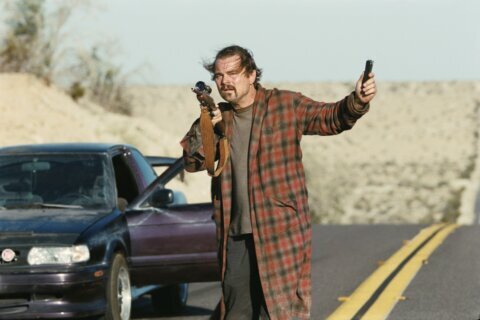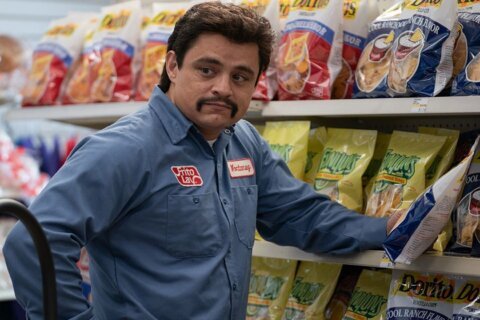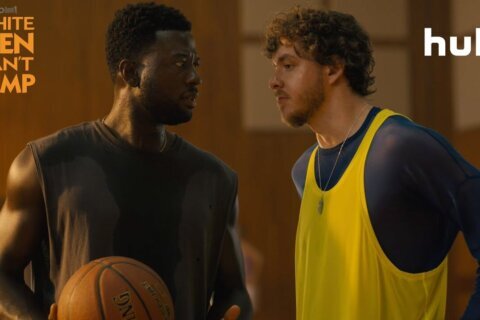It was acquired by Netflix after premiering at the Toronto International Film Festival.
This Friday, “Concrete Cowboy” finally makes its streaming premiere for all to see.
The story follows 15-year-old Cole (Caleb McLaughlin), whose exhausted Detroit mother sends him to North Philadelphia to live with his estranged father, Harp (Idris Elba). As he bonds with his father, he discovers an urban cowboy subculture at the Fletcher Street Stables where youngsters learn life lessons.
It’s a breakout leading role by McLaughlin, best known as Lucas in Netflix’s “Stranger Things” (2016), for which he won an NAACP Image Award for Outstanding Youth Performance. His new role recalls Tre Styles in “Boyz n the Hood” (1991), navigating bad influences like his drug-dealing cousin, Smush (Jharrel Jerome, “Moonlight”).
In this analogy, Elba is Furious Styles, only rather than Compton, he lives in a cluttered Philly row house like Rocky Balboa, offering a trash bag for a couch pillow and only a few soda cans in an empty fridge.
Indeed, there’s an Italian Stallion mentality involved in teaching his son work ethic by scooping horse poop from the stables. Only after you pay your dues can you learn the glory of actually breaking and riding a steed.
Director Ricky Staub delivers clever shot compositions, filming Cole on his dad’s couch through the bars of the stairway railing. We think this is just an artistic shot, only to pan around the room to find his father watching over him from above.
More importantly, Staub casts a mix of actors (Method Man) and actual cowboys, similar to the real-life nomads in “Nomadland” (2021). The end credits offer footage from real interviews, decrying gentrification and praising the stables for shaping lives.
”I believe in my heart because of this stable that’s why I don’t have a felony on my record,” one interviewee says.
Staub’s creativity was sparked when he was surprised to see a man riding a horse down the streets of Philadelphia. This caused him to grab a copy of Greg Neri’s novel “Ghetto Cowboy” (2011), which was inspired by an article in Life magazine. Research shows the Fletcher Street Stables date back 100 years to when horse-drawn wagons delivered milk, produce and laundry.
“That’s a tough neighborhood, but if you’re on top of a horse, people literally look up to you,” Neri told the Associated Press, adding that 1 in 4 American cowboys were Black.
Sadly, Black actors have historically been sidelined in Westerns, except for the few welcome exceptions of Cleavon Little in “Blazing Saddles” (1974), Morgan Freeman in “Unforgiven” (1992) and Denzel Washington in the remake of “The Magnificent Seven” (2016). From John Wayne to Gary Cooper, it’s Hollywood’s most whitewashed genre.
No, the soundtrack does not feature Lil Nas X’s smash hit “Old Town Road” (2018); thankfully, the film isn’t that blatantly obvious. (Although it would have been cool to include Mo Thugs’ “Ghetto Cowboy” (1998), which featured a smooth hip-hop sample of Kenny Rogers’ “The Gambler.”) Instead, we get an intimate score by Kevin Matley.
At times, the script can feel predictable, but it’s on a subject that most people know nothing about. Such a rare lens on an under-explored subculture overshadows any formulaic elements, its gritty tone loosely forming an indie horse trilogy with Chloe Zhao’s “The Rider” (2017) and Laure de Clermont-Tonnerre’s “The Mustang” (2019).
Sadly, “Concrete Cowboy” seems to have missed the Oscar window, but it is worth your time. Just as 2Pac spoke of a rose growing through the concrete, this film cements a hoof print like Roy Rogers’s Trigger on the Hollywood Walk of Fame.









